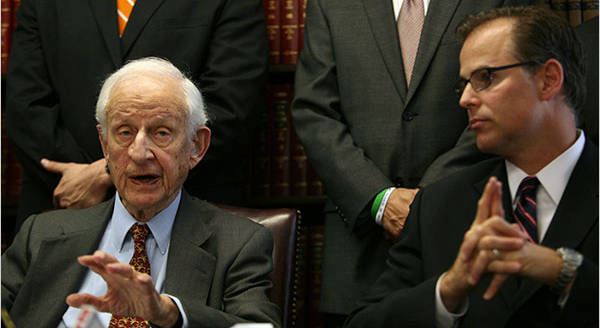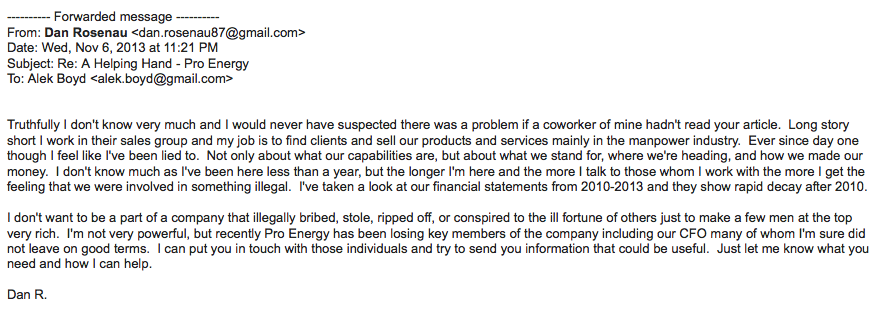[UPDATED*] On Monday this week,
one of Spain’s newspapers of record (El Mundo), published the details of six Venezuelans being investigated, by Spain’s Anti Money Laundering squad (SEPBLAC), for having taken part in money laundering. The news came after the U.S. Financial Crimes Enforcement Network (FINCEN) singled out a bank in Andorra (BPA), a tax haven tucked in the Pyrenees between France and Spain, for having laundered money for Russian, Chinese and Venezuelan criminals. FINCEN’s announcement came in the back of an Executive Order from President Barack Obama, targeting seven high ranking chavistas, for being «involved in or
responsible for the erosion of human rights guarantees, persecution
of political opponents, curtailment of press freedoms, use of
violence and human rights violations and abuses in response to
antigovernment protests, and arbitrary arrest and detention of
antigovernment protestors, as well as the significant public
corruption by senior government officials in Venezuela.»p { margin-bottom: 0.1in; line-height: 120%; }
*Fresh reports from another paper of record indicate that Spanish companies paid $148 million to obtain contracts in Venezuela (in English here).
Two of the six
individuals identified, Nervis Villalobos and Javier Alvarado, have
been named in a lawsuit brought against Derwick for having received
millions of dollars worth of bribes. Furthermore, Villalobos is no stranger to corruption accusations in Venezuela. The man has got pedigree.
Villalobos was
Venezuela’s Viceminister of Energy and CEO of CADAFE, a power company
fully owned by the Venezuelan State. In 2007, Chavez ordered all
power companies, whether public or private, to merge into a
nationwide conglomerate named CORPOELEC. Having being sacked from his
CADAFE position by Hugo Chavez, Villalobos was brought back as an aide of sorts by Rafael Ramirez, longtime Energy Minister and CEO of PDVSA. Villalobos has been a regular passenger in flights aboard
Derwick airlines.
Alvarado, on his
part, was CEO of Electricidad de Caracas, and shared with Ramirez
important board positions at newly formed CORPOELEC. Alvarado’s son,
also called Javier, is a school friend of Pedro Trebbau, one of
Derwick’s top executives. In fact, when Alvarado Jr was importing an
old Porsche he bought from a convicted oil trader, he gave
Derwick’s office address in Caracas as contact.
FINCEN’s report mentioned PDVSA as source of syphoned billions. Derwick
Associates got all its 12 contracts either directly from CORPOELEC
(through Alvarado and Villalobos), or from its partner PDVSA / Bariven (through
Villalobos and Ramirez).
El Mundo then revealed that Duro Felguera, a Spanish procurement company, had paid Villalobos $50 million for “oral consulting”, in relation to a €1,500 million contract in Venezuela (Termocentro). The exposé
caused Duro Felguera a 10% drop in share value.
In a separate deal,
ProEnergy paid bribes to Majed Khalil Majzoub ($8 million) and Omar Petit ($1.3 million) to obtain another contract in Venezuela (Termozulia). And what a thug is that Majzoub…
Petit used to work
for ProEnergy, as Director of Latin America Business Development. His
father, of same name, worked for PDVSA until retirement. Venezuelan sources claim that Petit Sr was an associate of sorts of Jesus Rangel, former CEO of C.A. Energía Eléctrica de Venezuela (Enelven), yet another one of the companies absorbed by CORPOELEC.
Crucially, Rangel was ratified in his position at Enelven by Villalobos, after a political cleansing of anti Chavez workers in 2004.
ProEnergy and Derwick have submitted procurement proposals to Venezuelan institutions. They started doing so long before Hugo Chavez declared the state of emergency that ended up awarding 12 no-bid contracts to Derwick, according to documents leaked by ProEnergy staff (see email below). Proposals
submitted by ProEnergy and proposals submitted by Derwick were authored by the same individuals: John Stevens (ProEnergy’s Vice
President of Sales), Joaquin Mavares (ProEnergy’s Vice President),
and Omar Petit (ProEnergy’s Director of Latin America Business
Development). In fact, in more than one occasion, according to leaked
documents, what Derwick did was simply replace ProEnergy’s logo, bank
accounts, but, more importantly, costs to include millions of dollars in overcharges: everything else in the
proposals remained the same, including authors, according to
documents’ metadata.
How can this be? How
could Derwick’s proposals be prepared and authored by ProEnergy staff? Not only the ones for Venezuela, but also a bid in Suriname. Is
it not evident that using proposals interchangeably does away with
differentiation of bids / companies? ProEnergy paid bribes for the obtention of
Termozulia contract, as revealed by Venezuelan journalists. Crucially, Termozulia contract and the bribes paid to obtain it, took place after Derwick and ProEnergy started working together. Given how
ProEnergy and Derwick conducted its businesses with CORPOELEC and
PDVSA / Bariven, does anyone buy Derwick’s line that contracts
obtained did not involve payment of bribes to Villalobos, Alvarado
and others?
As per El Mundo and
local Venezuelan sources reports, the workflow in obtention of power
contracts looks like this:
Duro Felguera
>> $50 million bribe >> Nervis Villalobos / Javier Alvarado >>
Termocentro contract.
ProEnergy >>
$9.3 million bribe >> Majed Khalil / Omar Petit >>
Termozulia contract.
However Derwick
wants us to believe that no bribe made part of their workflow. Every
single multinational and local company making business of moderate
size in Venezuela pays bribes. To be fair, that’s just the way it works. If no bribe is paid no
contract is granted. But the peculiar thing about Derwick in
particular, is their refusal to admit publicly that solely through corruption
and nepotism can their success be explained.
 Without a track record to speak of, Derwick insists that their company has been
Without a track record to speak of, Derwick insists that their company has been
victimized by a conspiracy, led by me, to “tarnish its reputation”,
while swearing that all their work has been above board. Moreover,
Derwick employs Adam Kaufmann, a former Manhattan’s DA’s Prosecutor,
a man that spent over decade working with Robert Morgenthau (left in pic., Kaufmann on the right), who has
had the gall -I am more inclined to think the stupidity- of daring to go on record in the Wall Street Journal to claim that Derwick is a “transparent company with nothing to hide.” Contrast, however, what Kaufmann says to the WSJ,
to what Derwick’s lawyers do in a lawsuit filed against it in New
York:
Kaufmann to
the WSJ: “We are transparent! We have nothing to hide!”
Derwick
lawyers: “Your Honor, we demand that all deposition information and discovery material regarding our activities be kept under seal…”
Truly transparent,
eh?
Derwick’s time’s up.
Its execs are currently being probed by Manhattan DA’s Office, several U.S. Federal Agencies and now the corrupt thugs that contracted them are also investigated by FINCEN and Spain’s Anti Money
Laundering authorities. This will, almost certainly, lead to further
investigations by other Spanish and / or European law enforcement
agencies. For instance, El Mundo reports that Villalobos wired money to bank accounts in Miami. Is RBC, as quoted in SEPBLAC’s report, the Royal Bank of Canada? Also consider that Villalobos is an intermediary, a bagman for a big chavista beast, otherwise known as Rafael Ramirez. Villalobos didn’t just pocket the $50 million, simply because having no official job at the time he couldn’t possibly have awarded a contract. That’s the remit of someone with true discretionary power, someone high enough in the chavista food chain, a Ramirez, a Cabello…
Derwick also stands accused of paying, at least, $50 million to Diosdado Cabello to obtain contracts (see Cabello mention in another email below). Its partner / alter ego already paid millions to
get Termozulia contract. Seeing what Villalobos got from Duro
Felguera for same purpose, and Derwick’s repeated refusal to open up
to scrutiny in lawsuits, its credibility is simply non existent.

Notice mention of Majzoub brothers and Ricardo Fernandez, all three proxies of Diosdado Cabello.
Derwick execs
favourite argument is that I have been paid to write about them, that
my work to expose chavista corruption, which started when some of
them were teenagers, is some sort of vendetta, and that silencing me
-through break in, theft, stalking, online defamation, spurious legal accusations and threats against my children- will bring to an end
their problems with the justice. I guess in their soireés in newly
acquired, multimillion dollar houses overlooking the greens of
Caracas Country Club, among all those idiotic yesmen, chavistas and
pneumatic women, they must think that I have enlisted Barack Obama, Manhattan DA’s
Office, FINCEN, SEC, FBI, Treasury, IRS, DEA, Homeland Security, the
WSJ, El Mundo, and SEPBLAC for my «campaign». Like their chavista patrons like to say: “It’s all an Imperial Conspiracy!”
It is not a conspiracy to quote them admitting to payment of «consulting fees», or to link to American and Spanish newspapers and investigations; it is not a conspiracy to say that Derwick pays Wikipedia editors to scrub their non existent «reputation»; it is not a conspiracy to mock their advocates idiotic arguments; and to ridicule their lawyer’s untenable positions.
As I said a while back, Derwick brought all of this to themselves, and they have only themselves to blame for what’s coming their way. I have been told that sancochos in El Furrial are hopelessly boring…
Tomado de Derwick Associates paid bribes to get contracts in Venezuela
